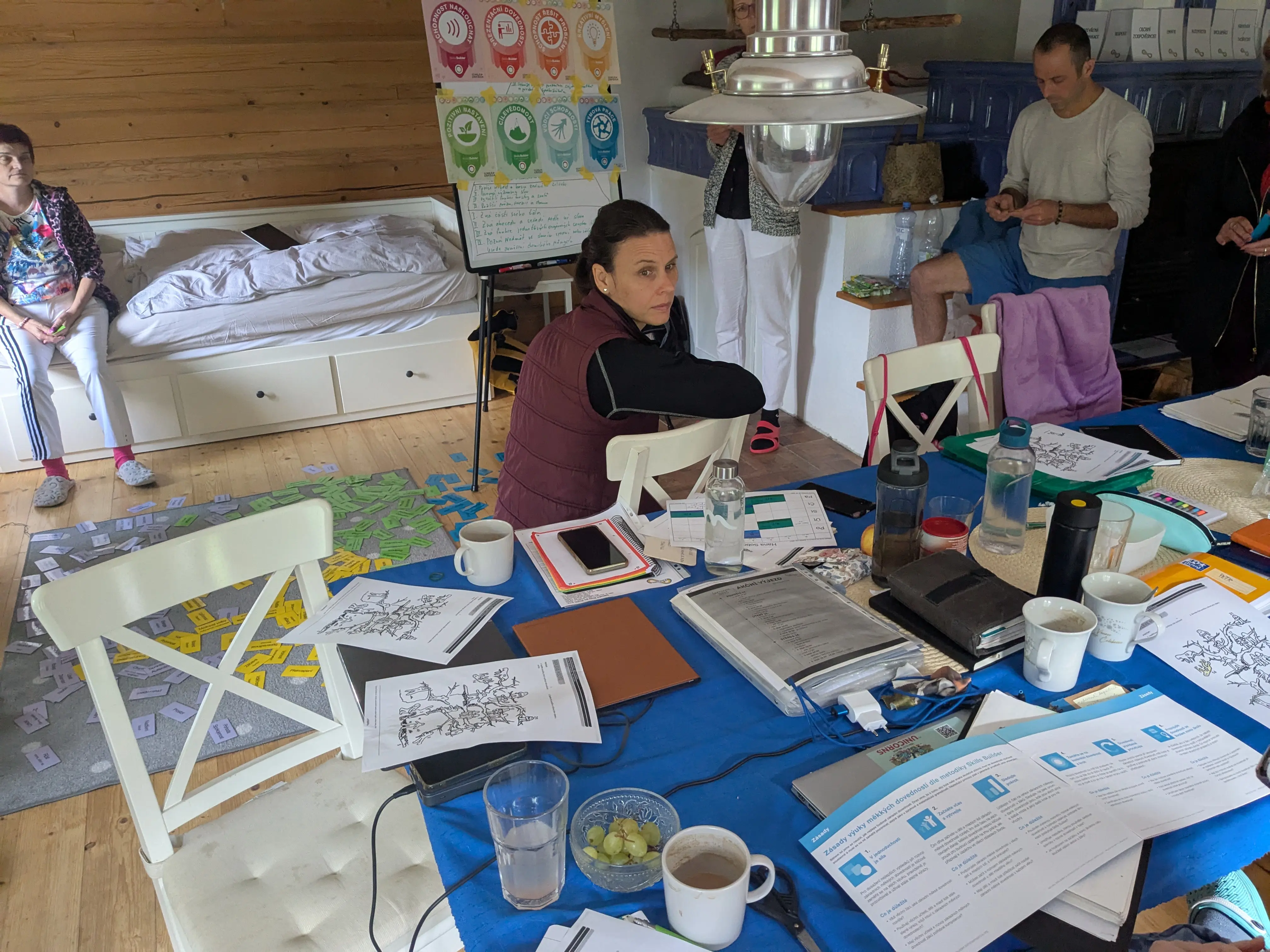At the beginning of the academic year, essential skills were introduced to parents through experiential activities. At the same time, they were sent a link to the methodological portal, including the Skills Builder website, and information in the weekly bulletin. The entire school began working with the methodology on October 1st at a whole-school assembly. One month was dedicated to the development of each skill, and its introduction takes place during the morning circle (age-mixed groups) in the form of a skit, a task, or a mind map. Each month, teachers aim to try one of the Skills Builder activities in each teaching group, and then share their experiences at a joint meeting. A Skills Builder notice board is located in the central part of the school, where skill logos, including their individual steps, were gradually placed. In addition, essential skills logos for the given month were displayed in each classroom.
























